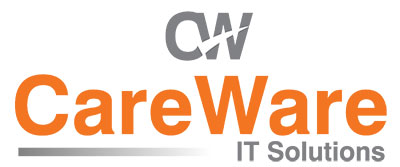10 Important Tips To Avoid Spyware
When dealing with spyware, the best defense is a good offense. If you’re able to take action to prevent spyware getting onto your computer to begin with then you are less likely to become a victim. It goes without saying that this is easier said than done. Despite difficulties, there are numerous ways that you can reduce the chances of spyware attacks:
#1 Carry out routine checks to ensure your version of Windows is current with the latest patch by configuring the automatic updates setting within the control panel. Microsoft are known to issue essential security updates on a monthly basis. Many of these are designed to reduce the system’s vulnerability or avoid particular spyware threats.
#2 Install an anti-virus software package and confirm that it remains up-to-date at all times. There really is no excuse not to have one as a large majority of them are available for free. Some of the most popular brands include: Norton, Spybot Search & Destory, Microsoft Defender, McAfee, Grisoft and Pest Control. Your internet service provider may supply you with complimentary anti-virus software or recommend a particular service to you.
#3 It is advised that you stick to trustworthy sources when downloading shareware as there are quite a few malicious sites out there that could have embedded a virus in the file. One example of a reliable site is: cnet.com.
#4 When downloading software, ensure you read the end user license agreement to guarantee there are legitimate terms before confirming anything. If you have any doubt at all then you should refrain from installing the utility being advertised.
#5 Never click on any pop-ups advertising services such as: computer cleaning, free anti-virus/anti-malware software or the like. For the most part, these are either scams or an attempt to download spyware onto your PC. It is far more reliable to go directly to official website that produces the software rather than clicking on a picture that redirects to another website.
#6 Ensure that your browser’s security level is set to medium or above as this will prevent certain, untrustworthy sites from opening. You will undoubtedly receive my error messages when performing a particular tasks but this is a small price to pay in order to guarantee heightened security.
#7 Install a firewall regardless of whether it is hardware or software based. If you are a home user then you may need external support to assist with the set up. My other recommendation is to use a separate router as opposed to sharing the internet connection through one of the computers. This helps to provide as an additional barrier between you and potential attackers.
#8 Avoid any questionable websites. If you feel any uneasiness when visiting a particular webpage then you probably shouldn’t be there. In which case, you should immediately close your browser to prevent any possibility of a virus infecting your computer.
#9 If you receive any virus alerts when visiting any websites then you shouldn’t just delete the notification and continue. Instead, stop navigating that site and open the task manager by pressing CTRL, ALT and Delete simultaneously and selecting that option from the list. At this point you should close the web browser from the list of running programs and immediately run a virus scan of the system to guarantee nothing has been downloaded during the time you spent on that site.
#10 Lastly, you must never download an email attachment if you are uncertain of the source.


Comments are closed.